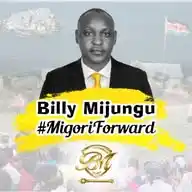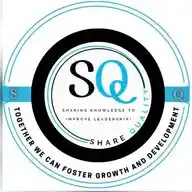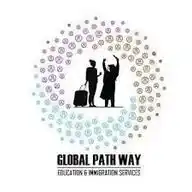
Billy Mijungu
108 subscribers
About Billy Mijungu
A Practitioner in Public Policy ,Governance, Leadership, Politics, Management and Advocacy, Advisor Services In Youth, ICT & Innovation , MSME's and Education. & a Politician
Similar Channels
Swipe to see more
Posts

In the Name of June 25th By Billy Mijungu As the calendar inches closer to June 25th, the tension in the air thickens. In the minds of the Gen Z generation, this is no ordinary date. It has become a symbolic day, born out of defiance, molded in sacrifice, and nurtured by memory. A day that once witnessed horror, blood, bravery, and resistance. A day that has now carved itself into the nation’s political calendar and perhaps, its future. The events of June 25th 2024 were more than just youthful protest. They were a reckoning. The horror scenes of that day, youth flooding the streets, facing off with police, some falling, some never making it home, continue to haunt the national psyche. It was a day that shook the foundations of the establishment and for the Gen Zs who emerged from it more defiant and more united, it is nothing short of a national awakening. Now a year later, the specter of that day looms again. There is a possibility, not yet confirmed but dangerously likely, that June 25th could become an annual expression of youthful resolve. A national ritual. If that happens, it will be the single most dangerous political inheritance for any sitting head of state. Because the traditional Kenyan voter has often been moved by tribe, region, or promise, the Gen Z voter is moved by memory. A memory that has pain at its core and truth as its battle cry. In 2025, any slight success in how this day is marked or mishandled will have a snowball effect. By 2027, it will not just be an annual protest, it will be an electoral movement. If Gen Zs gather again this June and manage to turn grief into powerful peaceful presence, then come June 25th 2027, just six weeks to the General Election, their gatherings will not only remember the fallen but also mobilize the living to the ballot. And with the numbers they carry, they can shape elections forever. That is why this year’s response matters. Taming June 25th is not a policing matter. It is a leadership matter. It is a listening matter. The more the state treats this day with suspicion, the more suspicious the day becomes. The more force is applied, the more the memory burns deeper into the resolve of the youth. Violence is not the answer, it never was. The state must treat this June 25th with the wisdom it showed during the January 30th 2018 swearing in of Raila Odinga as the People’s President. That day could have exploded into chaos but the state chose tolerance, optics, and quiet pressure. There were no mass arrests, no rubber bullets, no teargas clouds suffocating dreams. Instead, the moment passed peacefully. That is the script Kenya needs again. Let the police keep it mellow. Let them be present but not aggressive. Let them watch, not provoke. Let the state listen, not shout. This is not a war. This is a generation trying to write its chapter in the book of Kenya. And if history teaches us anything, it is that no amount of force can erase the ink of collective memory. In the name of June 25th, let us reflect. Let us mourn. Let us remember. But above all, let us lead with wisdom. Because the youth are not asking to burn the nation, they are asking to shape it. And if that scares those in power, perhaps it is time they reexamined their definition of leadership. The countdown to June 25th has begun. What the nation does or fails to do on that day will echo not just in the streets but in the polling stations of 2027. And the horror movie some fear could very well become a redemption story. Or a reckoning. The choice is ours. Follow Facebook, X, Instagram, TikTok, and LinkedIn @BillyMijungu #Forward #TusongeMbele

https://www.tuko.co.ke/editorial/opinion/591235-kenya-gen-z-digital-democracy-election-transparency/

MIJUNGU: How VAT Special Table is Killing Businesses: The Reverse Trial of Taxpayers at KRA https://nyanzanews.co.ke/opinion-and-blogs/mijungu-how-vat-special-table-is-killing-businesses-the-reverse-trial-of-taxpayers-at-kra/

MIJUNGU: Why Nairobi ’27 governor race will be yardstick to check national, presidential politics in general elections https://nyanzanews.co.ke/opinion-and-blogs/mijungu-why-nairobi-27-governor-race-will-be-yardstick-to-check-national-presidential-politics-in-general-elections/

MIJUNGU: How VAT Special Table is Killing Businesses: The Reverse Trial of Taxpayers at KRA https://nyanzanews.co.ke/opinion-and-blogs/mijungu-how-vat-special-table-is-killing-businesses-the-reverse-trial-of-taxpayers-at-kra/

Safeguarding Democracy Through Tech By Billy Mijungu In Kenya’s fast-evolving democratic space, a new force is emerging: Generation Z. These digital natives are rewriting the rules of civic engagement. Frustrated by opaque electoral processes and driven by the need for transparency, young Kenyans are stepping up to build tools that protect and strengthen democracy through technology. At the center of this shift is the development of digital systems that independently capture, verify, and analyze election results in real time. These innovations focus on data from Form 34A—the official document filled at each polling station that records presidential votes. Once an image or scan of the form is uploaded, advanced tools such as artificial intelligence and optical character recognition (OCR) extract the vote counts. The system then automatically compiles this data into Forms 34B and 34C, which are used to tally constituency and national results. Simultaneously, the system cross-checks its findings against the Independent Electoral and Boundaries Commission (IEBC) portal to highlight any discrepancies instantly. What makes this movement particularly powerful is its scalability and inclusivity. The same systems being used to monitor presidential elections are being adapted to track results across all elective seats Governors, senators, women representatives, members of the national assembly, and members of county assemblies. The vision is clear: a grassroots-led, tech-enabled, transparent electoral process in which every vote is counted accurately and in full view of the public. This innovation is not happening in boardrooms or foreign-funded programs. It is emerging from local tech hubs, university labs, and youth-led initiatives. These young developers and civic technologists are not driven by profit but by purpose. Many are crowd-sourcing resources and collaborating in open-source communities to ensure the systems remain free, transparent, and trustworthy. Their efforts address a long-standing challenge in Kenya’s democratic journey. Past elections have been marred by allegations of fraud, delayed results, and legal disputes. These issues have eroded public trust in electoral institutions and, in some cases, led to unrest. By giving citizens tools to verify results independently, this new wave of civic technology restores confidence and shifts the power dynamics placing oversight into the hands of the people. In keeping up with people-centric elections, Kenyans are likely to go further building open, accessible databases that safeguard the integrity of public service and the individuals entrusted with it. These databases could track public officeholders' performance, ethical records, promises made versus delivered, and even financial disclosures. This kind of transparency ensures that elected leaders remain accountable beyond election day and throughout their time in office. More than just safeguarding the vote, these efforts have broader implications. A democracy protected at the ballot box translates into a more accountable public service. When leaders know their legitimacy is rooted in an indisputable mandate, they are more likely to focus on service delivery, development, and policy grounded in public interest. Kenya is witnessing a digital awakening. Generation Z is no longer content to be passive observers of democracy. They are actively shaping it, using technology as both shield and spotlight. With each line of code and every verified result, they are strengthening the democratic foundation of the nation. In this new era, safeguarding democracy means empowering citizens. It means ensuring that every vote counts and is counted truthfully. And most importantly, it means building a future where public service is guided by integrity, enabled by technology, and driven by the will of the people. Follow the unfolding narrative on Facebook, X, Instagram, TikTok, and LinkedIn @BillyMijungu #Forward #TusongeMbele

https://www.tuko.co.ke/editorial/opinion/590477-nairobi-gubernatorial-race-babu-owino-poised-lead-runs-wiper-ticket/?utm_source=facebook&utm_medium=pp&utm_campaign=tuko&fbclid=IwY2xjawKgtEFleHRuA2FlbQIxMQABHq2KlV3YNpJ1Ur5rFQuNq2KsGekiqreNRAmeiK6a3NPubKqKXvyZjRJzvAJM_aem_nmRuufvQc9w8B3en_LWLuA

The Inappropriateness of Fuliza from Safaricom By Billy Mijungu In the name of convenience, Safaricom’s Fuliza has become a silent predator, a digital debt snare wrapped in the alluring fabric of financial flexibility. What began as a short term solution to enable seamless mobile transactions has morphed into a normalized dependency for millions of Kenyans, with ramifications far beyond the everyday lipanampesa moment. At face value, Fuliza appears as a friendly overdraft facility. You want to complete a transaction but your M-PESA balance is short. No worries, Fuliza steps in, fronts you the cash, and you're sorted. Repay it when you top up. Simple, right? Not quite. Here is what Safaricom doesn't tell you or tells you in the smallest of fine print that vanishes in the speed of a hakikisha confirmation. First, any money sent to a number with Fuliza debt becomes unrecoverable. Reversals are practically impossible regardless of circumstance. Safaricom offers no clarity, just a cold unapologetic “transaction cannot be reversed,” a form of institutionalized thuggery hiding behind corporate terms and conditions. Then there's the cost. Fuliza is, by all metrics, more expensive than most formal credit facilities in the country. The facility charges fees and daily interest, which, compounded annually, exceed the original borrowed amount multiple times. This is a blatant violation of basic financial ethics and arguably regulatory guidelines that state profits from credit must not exceed the principal. Yet, here we are, normalizing digital debt that silently bleeds users dry. Even more concerning is the long term damage to your financial profile. Fuliza debts are recorded. Each time you borrow, your credit behavior is flagged. Use it frequently and your credit score starts to deteriorate. Slowly, you are boxed into the category of small time borrower, a status that locks you out from accessing larger, growth oriented loans from banks and financial institutions. Fuliza doesn’t just give you debt, it cheapens your financial reputation. And then there is the psychological entrapment. Once you are hooked to Fuliza, it becomes reflexive. Even when you receive money from a loan, a side hustle, or a friend, it first goes to clear the Fuliza balance. You start sending money with the knowledge that it will be swallowed whole by this invisible hole. It alters your financial discipline. You begin to delay repayment, let the fees stack, ignore the messages, and soon, it becomes just another part of life. But this isn’t life. This is debt dependence. Fuliza was designed as a bridge but it’s become a cage. Its ubiquity has turned it from a lifeline into a leash. For a nation striving to build a generation of financially empowered citizens, Fuliza undermines that dream by keeping people in constant micro debt. It is time to break free. Sign off Fuliza. It is not helping you grow, it is making you dependent. This is not financial inclusion, this is financial entrapment. And for many Kenyans, Fuliza has become a debt trap of monumental proportion with no end in sight. The only way to win is to step out. Opt out. Reclaim your financial future. Follow the unfolding narrative on Facebook, X, Instagram, TikTok, and LinkedIn @BillyMijungu #Forward #TusongeMbele

https://www.tuko.co.ke/editorial/opinion/591906-kenya-2027-political-puzzle-kalonzo-musyoka-man-to-watch/











